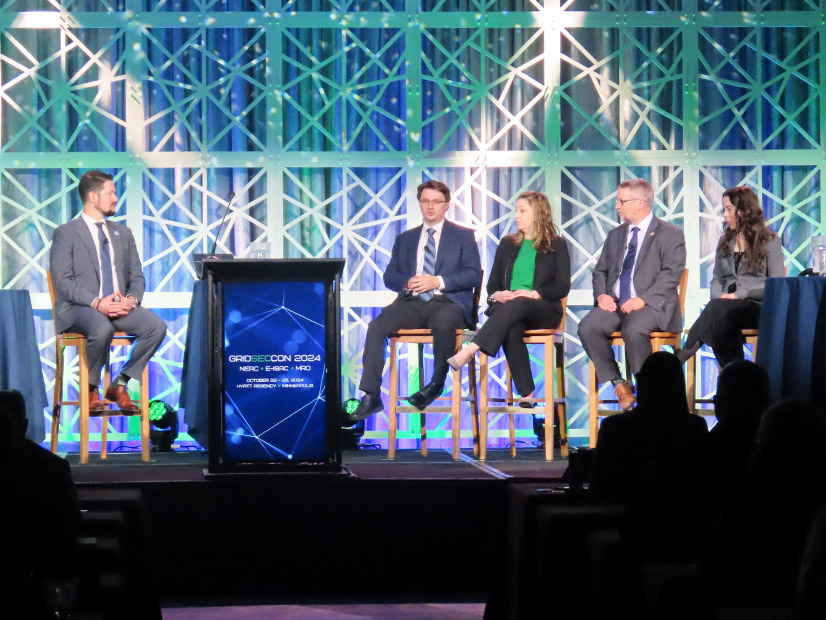Panelists Discuss Electric, Election Security Intersections

From left: Matt Duncan, E-ISAC; Timothy Davis, EI-ISAC; Brandi Martin, DOE; Spencer Wood, CISA; and Kathleen Miller, Natural Resources Canada | © RTO Insider LLC
Oct 29, 2024
|
Panelists at GridSecCon agreed that keeping the electric grid secure and reliable is a top priority to ensuring the safety of the upcoming elections.

